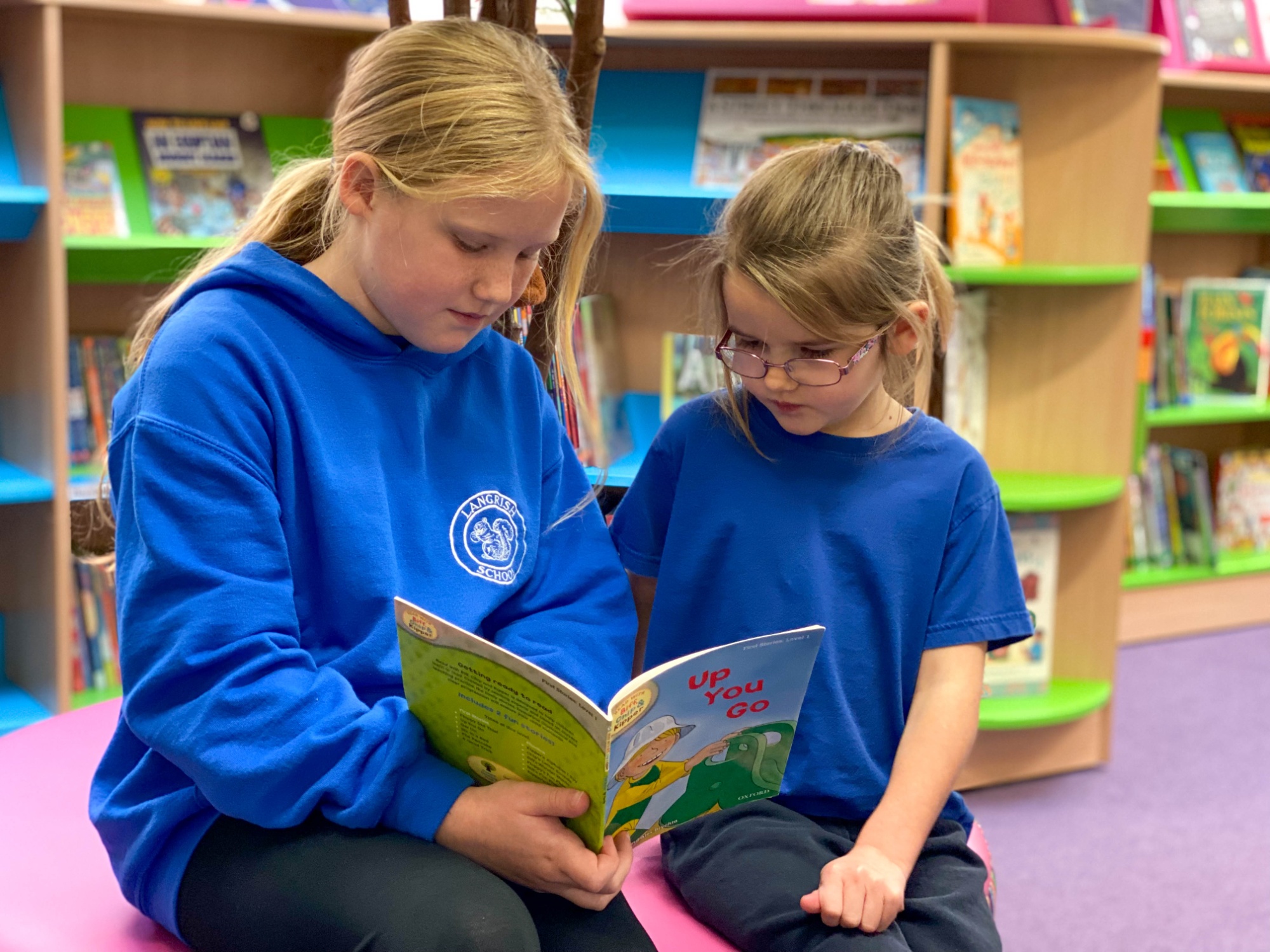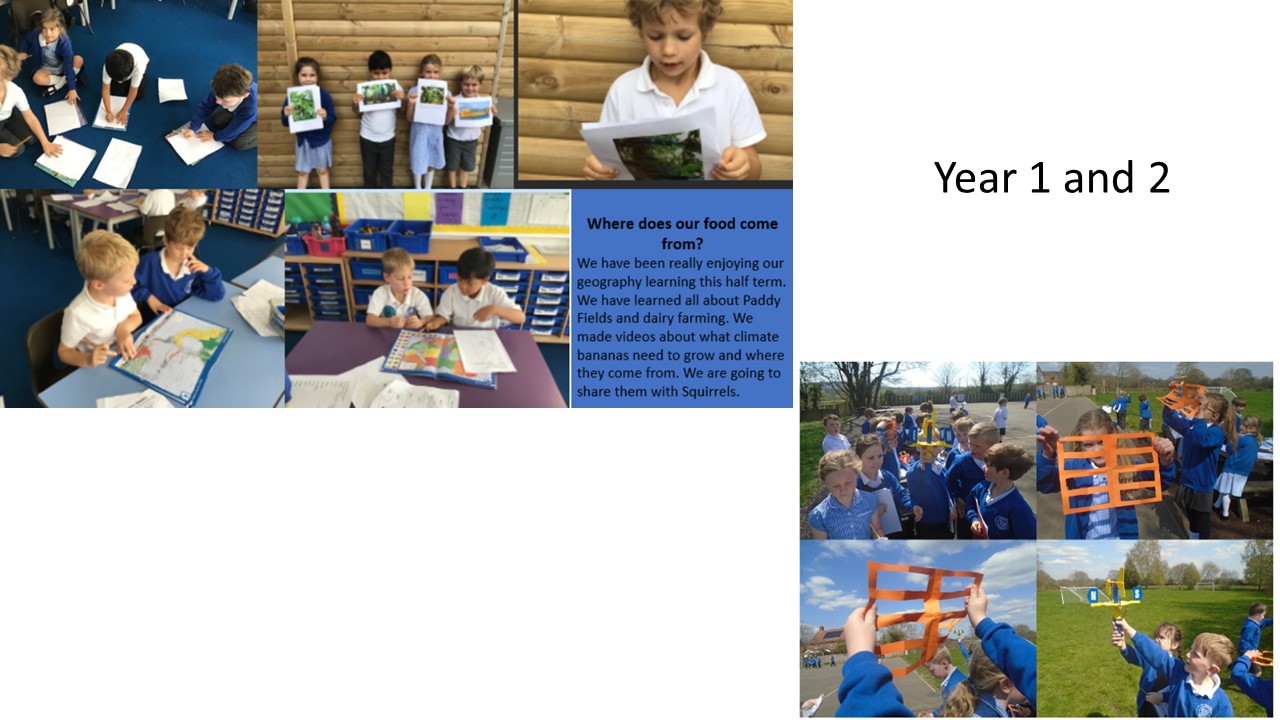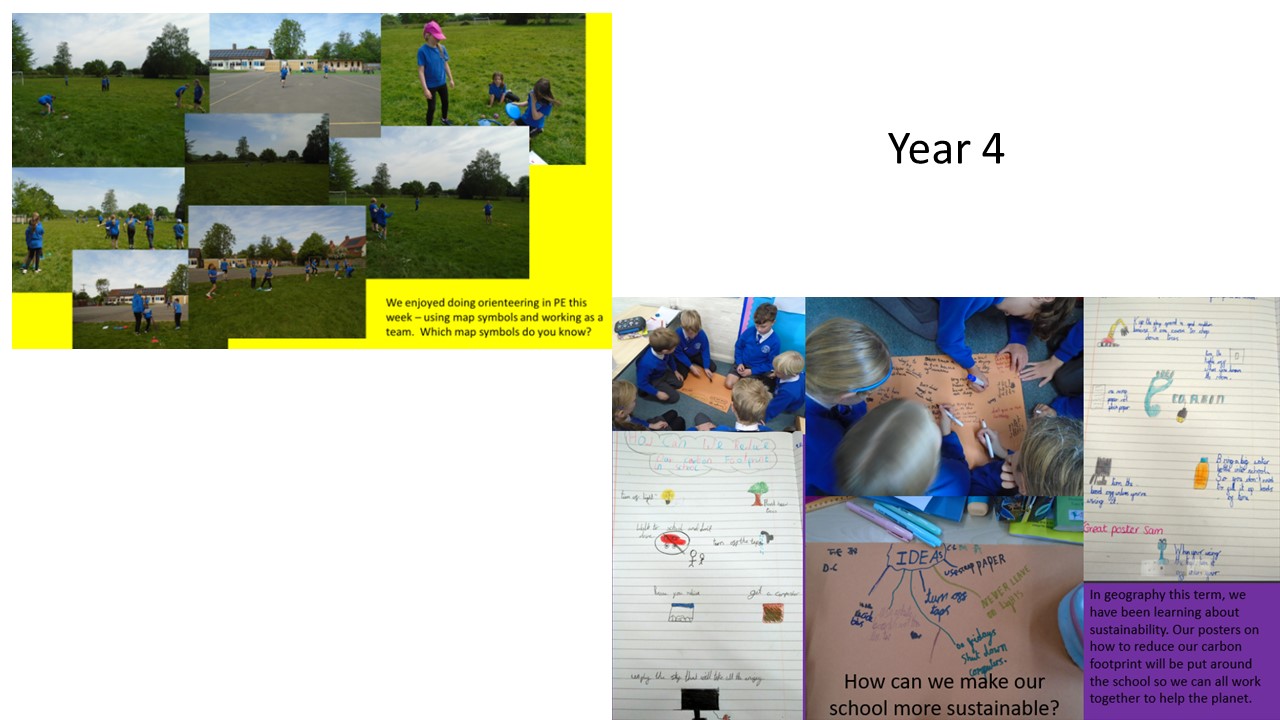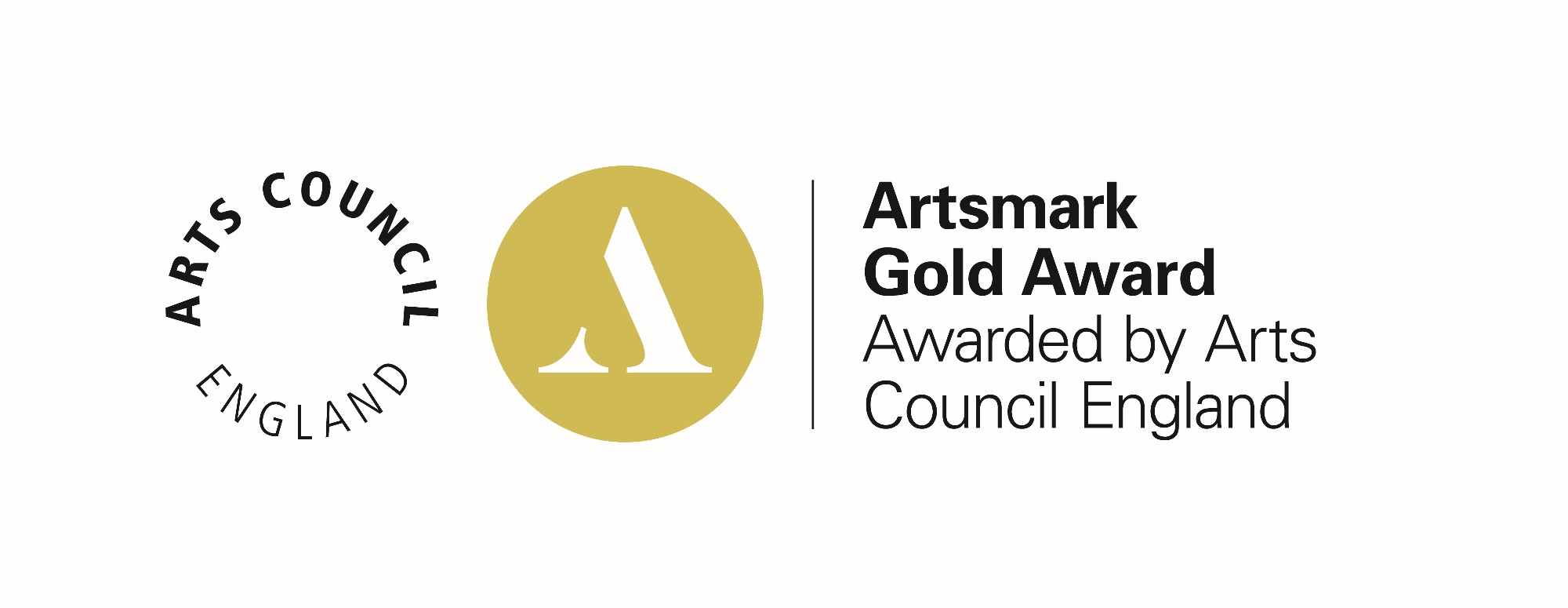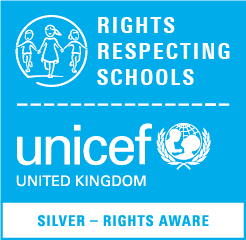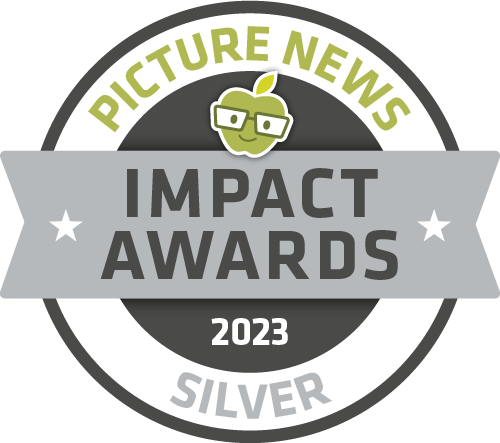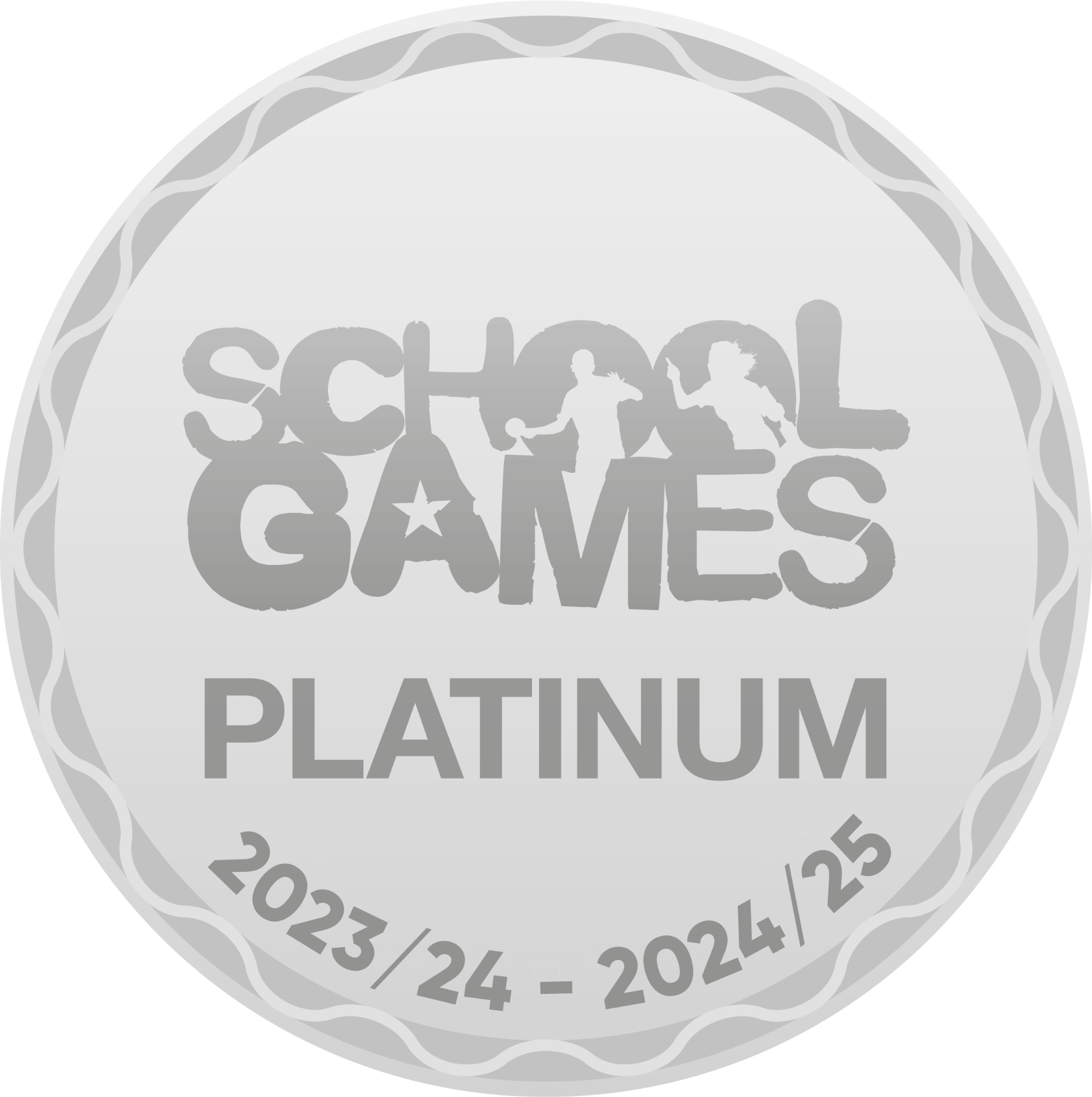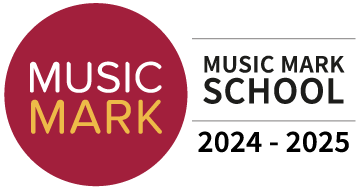Geography
Intent - How we have planned our geography curriculum?
Here at Langrish, our geography curriculum reflects the purpose and aims of the National Curriculum by helping our children develop a greater understanding and knowledge of the world, as well as their place in it. Our geography curriculum enables children to develop knowledge and skills that are transferable to other curriculum areas and which can, and are used, to promote their spiritual, moral, social and cultural development.
Our geography begins within our Early Years Foundation Stage [EYFS], building on children's geographical skills, knowledge and experiences. This is achieved through discussions, current news and relevant topics, previous experiences children have had such as holidays or surroundings of where they live. In the EYFS, we use maps, globes and an atlas to explore the world around us. Enhance our learning through role play experiences such as travel agents, learn about where our foods comes from and why and find information through photos, the Internet, fiction and non-fiction books. To bring our skills to life, the Year R children follow a map to our local farm, then create another map from their return of the route, drawing key map symbols.
As geographers, pupils are exposed to a rich and balanced curriculum that provides them with essential component knowledge and new vocabulary. As pupils progress through the school, they will develop an insight into the links between physical and human processes and how landscapes and environments have changed and continue to change over time.
We aim to develop an awareness of the diverse nature of the UK, and in more depth, our local area. Also develop an awareness of the global populations and the contributions from different societies, communities and individuals which are known to human understanding. Geography is, by nature, an investigative subject, which develops and understanding of concepts, knowledge and skills. We seek to inspire in children, a curiosity and fascination about the world and its people which will remain with them for the rest of their lives; to promote the children’s interest and understanding of diverse places, people, resources and natural and human environments, together with a deep understanding of the Earth’s key physical and human processes.
Implementation - How do we teach our Geography Curriculum?
At Langrish, we are proud of our geography planning, which was created to be an engaging, enjoyable, informative and challenging geography curriculum. In ensuring high standards of teaching and learning in geography, we implement a curriculum that is progressive throughout the whole school. Geography is taught weekly as part of a half-termly topic, focusing on knowledge and skills stated in the National Curriculum. At the beginning of each topic, children are able to convey what they know already as well as what they would like to find out. This ensures that lessons are relevant and take account of children’s different starting points. Every child is supported and challenged to reach their full potential.
Our geography long term plan shows progression from Early Years to Year six to teach contextual world concepts, understand the processes that give rise to key human and physical geographical features of the world and the geographical skills and locational knowledge through the use of globes, maps, atlases and digital technologies. This will be evident in all geography lessons but also in other parts of the school day such as home learning, early morning work or during a quick five minute ‘draw and label 3 map symbols’ wake and shake break. For all year groups, the learning and teaching in geography also recognises the importance of fieldwork with a number of studies, investigations involving observation, recording, presentation, interpretation and the evaluation of geographical information gathered outside of the classroom.
Impact - what is the outcome?
The impact and measure of our geography curriculum is to ensure that children are equipped with progressive, high quality geographical knowledge and skills that will enable them to be ready for the curriculum at Key Stage 3 and for life as an adult in the wider world. We want the children to have thoroughly enjoyed learning about geography, therefore encouraging them to undertake new life experiences now and in the future. The support from our fieldwork studies across the year groups, starting in the Early Years enable children to be challenged mentally and physically, have their opinions heard and experience nature and its processes for themselves, embedding a key memory and learning experience which will last a life time.
Each topic which links to the National Curriculum, sets clear objectives and outcomes for the children in terms of knowledge and understanding and skills acquisition. We ensure that when assessing the children, evidence is drawn from a wide range of sources to inform the process, including interactions during discussions, related questioning, day to day observations, practical activities, role play, presentation and communication of fieldwork data and writing in different genres and formative and summative assessment pieces of work.
Other ways in which our geographical understanding is shared and evident is through child discussions with the subject leader, observations of lessons, book scrutiny, support and guidance from the subject leader in staff meetings and the subject leader updating her geographical skills and knowledge to share with the rest of the school by attending network meetings and visits to other local schools.
SEND, inclusion & adaptation
Regardless of what lesson we are teaching, making it accessible and providing the right resources for all learners is our key focus.
We make geography accessible for all. We do this by:
- Making sure our lessons include a mixture of auditory, visual and kinaesthetic experiences.
- Ensuring the children have plenty of hands-on experience.
- Giving opportunities for the children to work in pairs or groups.
- Giving adult support where needed.
- Using a range of different sources, (not just written ones).
- Scaffolding and modelling.
- Revisiting, reviewing and retrieving prior knowledge, not just in geography lessons.
- Utilising different methods of technology to record findings, such as laptops, visualisers and Easi-speak microphones.
- Ensuring each year group have experiences of 'real life' and the natural world around them.
- Print out maps as well as having them on the board for easier access and reading.
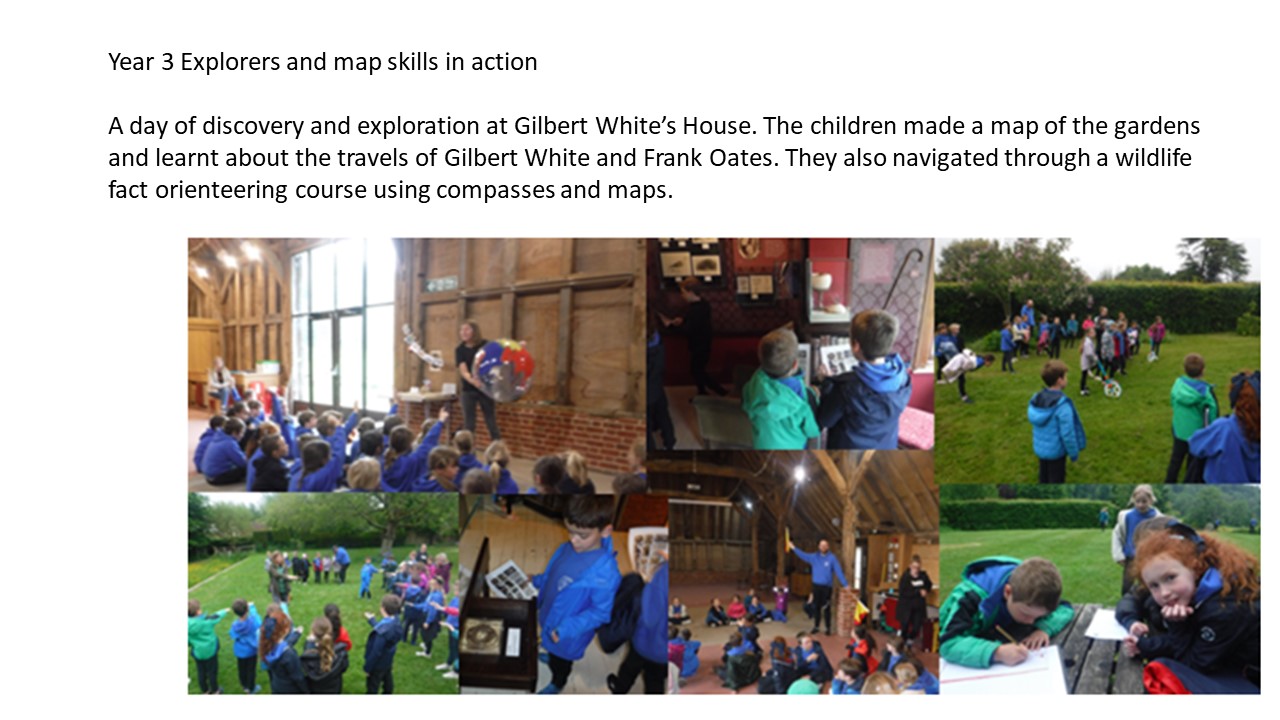
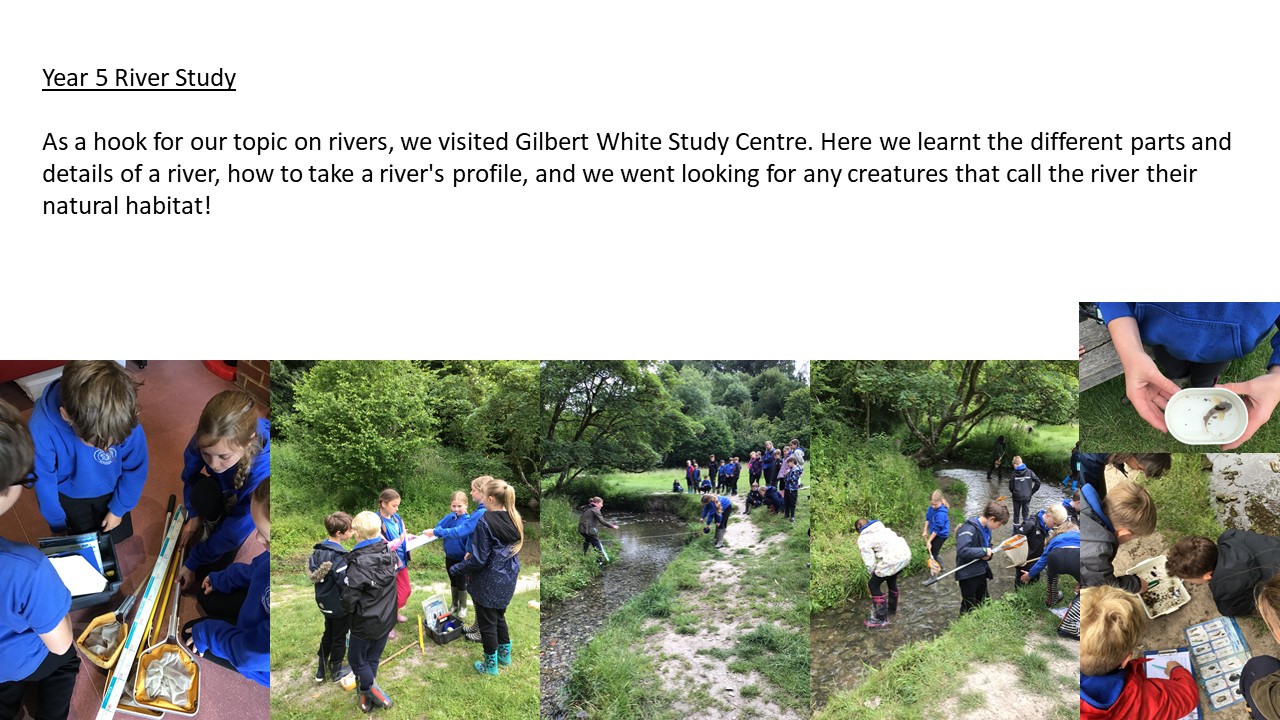
Long Term Plan
Please see below for an overview of the geography units taught.

